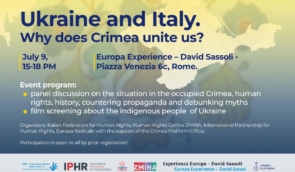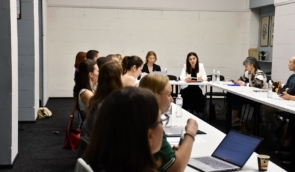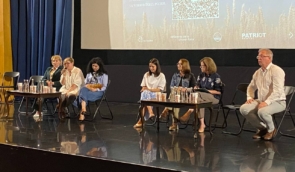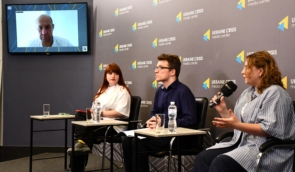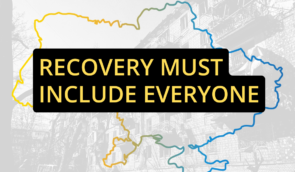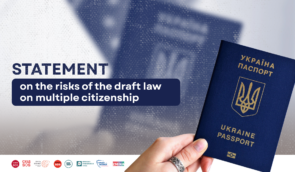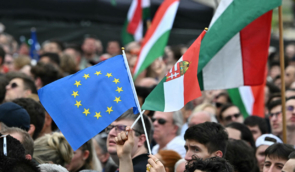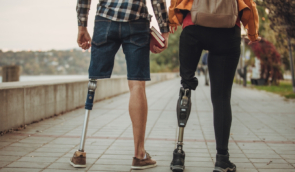From 2.8 to 4.7 million Ukrainians, including 260,000-700,000 children, could be victims of deportation – human rights defenders
From 2.8 to 4.7 million Ukrainians, including from 260,000 to 700,000 children, are potential victims of deportation, but the exact numbers are unknown.
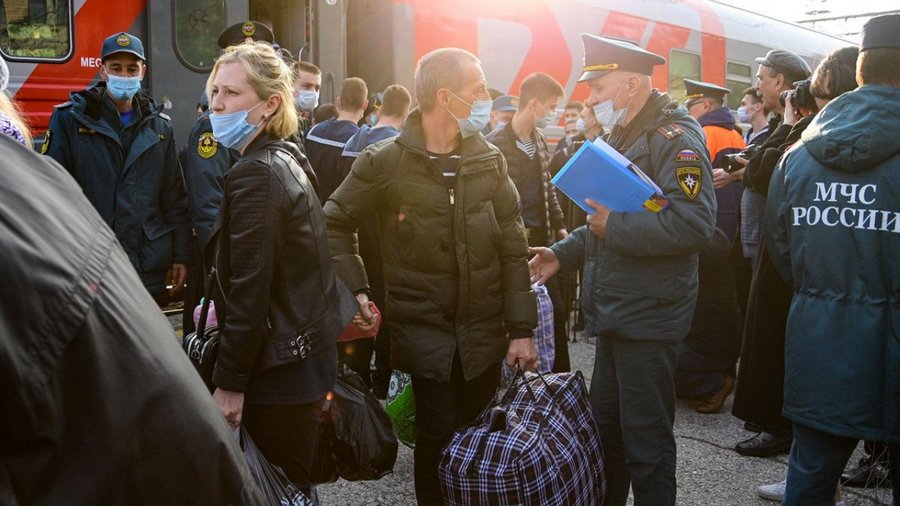 Illustrative image
Illustrative imageThis was discussed during the presentation of the analytical report of Ukraine 5AM Coalition at the Media Center Ukraine – Ukrinform in Kyiv on January 16.
The purpose of the report is to analyze the context in which the deportation is carried out, individual cases, as well as to show the systematic nature of the policy of the Russian Federation towards organizing the deportation of Ukrainian citizens to the territory of the Russian Federation and the Republic of Belarus.
As stated in the report, deportation is classified as a war crime and has become massive with the beginning of Russia’s full-scale invasion of Ukraine. Among the signs indicating this is deportation, not evacuation, as the Russian side positions it, are the use of coercion, the restriction of people’s decision-making choices, as well as the obstruction of leaving for the territories controlled by Ukraine.
“Deportation itself as a phenomenon includes other violations of human rights and war crimes, such as torture, inhumane treatment, filtration measures that actually preceded the deportation. Deportations did not end after Mariupol – a similar practice continues in Kherson region and will obviously be used in the future,” said Alyona Lunyova, advocacy director at the Human Rights Centre ZMINA.
 Alyona Lunyova. Photo: Media Center – Ukrinform
Alyona Lunyova. Photo: Media Center – UkrinformAccording to Tetiana Katrychenko, coordinator at the Media Initiative for Human Rights, filtration measures are nothing more than a check on citizens’ loyalty to the Russian Federation and cooperation with the Ukrainian authorities and military. The mass filtration process began precisely in Donetsk region. There, similarly to the northern regions of Ukraine, the Russian military closed all opportunities to leave the occupied territory and began to actively check citizens – not only those who wanted to flee but also those who were not going to leave their homes.
“Filtration could be divided into three levels. The first is a quick check at the demarcation line or in a specific settlement. The second is transportation to filtration centers, where the inspection was thorough and conversations were held. The third level of filtration occurred when the Russians had certain suspicions, then people were detained and subjected to brutal interrogations and prolonged detention, such as in the case of the drivers who helped take people out of Mariupol. They actually went through this third level of filtration when they were sent to places of detention, in particular to a penal facility in Olenivka, from where some were released after being held for 60 or 90 days under the so-called arrest. Some were then offered to leave through the Russian Federation, and that is how these people returned. And some still remain in places of detention,” Katrychenko explained.
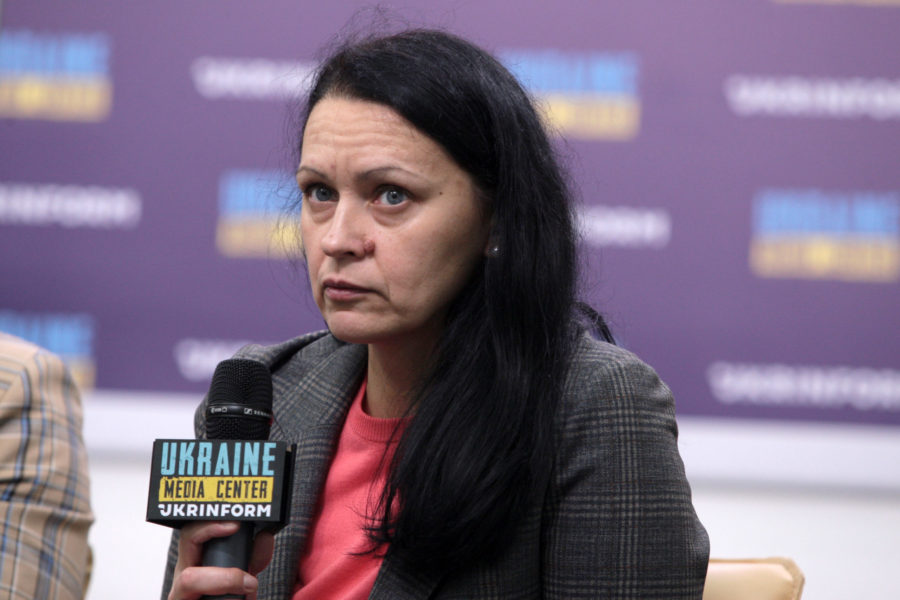 Tetiana Katrychenko. Photo: Media Center – Ukrinform
Tetiana Katrychenko. Photo: Media Center – UkrinformFrom a legal point of view, the legality of transporting people by Russia must answer several questions: what was the justification for it, was there a threat to citizens, did people understand that leaving was a temporary measure, and were they able to return home afterwards. The nature of what Russia passes off as an “evacuation” should be assessed against these criteria during future investigations.
“When it comes to war crimes, we can investigate individual facts, even the transfer of a person against their will. When we talk about crimes against humanity, this is already a more systematic policy that is manifested now in different territories of Ukraine. The crime of genocide involves the most complex criteria that must be proven in this case,” emphasizes Alina Pavliuk, lawyer and analyst at the Ukrainian Legal Advisory Group.
According to her, Ukraine’s national justice system has already recorded at least 60,000 potential war crimes, including forced displacement of citizens.
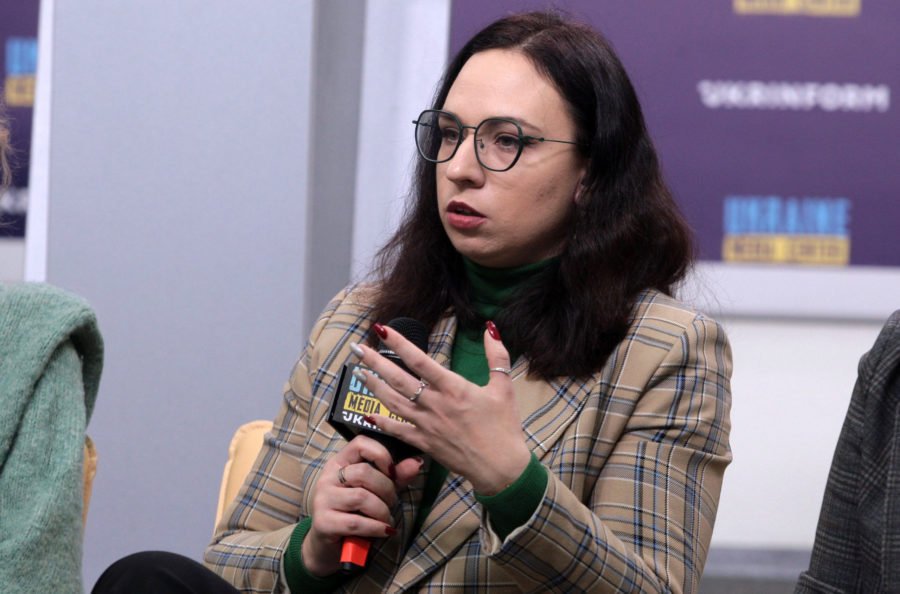 Alina Pavliuk. Photo: Media Center – Ukrinform
Alina Pavliuk. Photo: Media Center – UkrinformDeportation and abduction of children deserve special attention. According to various estimates, from 260,000 to 700,000 minor Ukrainians could be displaced since Russia’s large-scale invasion of Ukraine started. Most of them were displaced accompanied by a legal representative – parents or guardians. At the same time, as a result of filtration measures, some children ended up in the territory of Russia alone or their relatives were killed, said Kateryna Rashevska, a lawyer at the Regional Center for Human Rights.
“In Ukrainian orphanages, at least 90% of children have relatives who have the primary right to become their guardians and take them to bring up. When the Russian Federation forcibly transfers these children to Russian families, it is necessary to take into account the presence of blood relatives and the fact that the majority of orphans in Ukraine are social orphans,” Kateryna Rashevska adds.
According to her, it is known from open sources that children from Ukraine were deported to at least 57 regions of the Russian Federation, including Sakhalin, Astrakhan, Murmansk, and Dagestan, which are distant both geographically and culturally.
“Both factors run counter to the universally recognized principle of the best interests of the child, that is, do not meet the existing standards under international law,” the human rights defender said, “The Hague Conference on Private International Law has already paid attention to this situation and published its position on this violation. It is also shared by other organizations, in particular UNICEF and the Office of the UN High Commissioner for Human Rights, which indicated that neither the deportation nor, even more so, the forced transfer of Ukrainian children to Russian families comply with the International Convention on the Rights of the Child and international humanitarian law.”
 Kateryna Rashevska. Photo: Media center – Ukrinform
Kateryna Rashevska. Photo: Media center – UkrinformExperts emphasize that Russia as a state blocks access to information and contacts with displaced Ukrainians in every possible way, which makes it difficult to help them and gather basic facts about how and why people were deported. Therefore, almost the only channel of help for such people is informal communication with local non-governmental organizations and initiatives. Experts also place their hopes on the media outlets, including foreign ones, which still work in the territory of the Russian Federation, as a channel of communication.
Watch the full video of the press conference here.
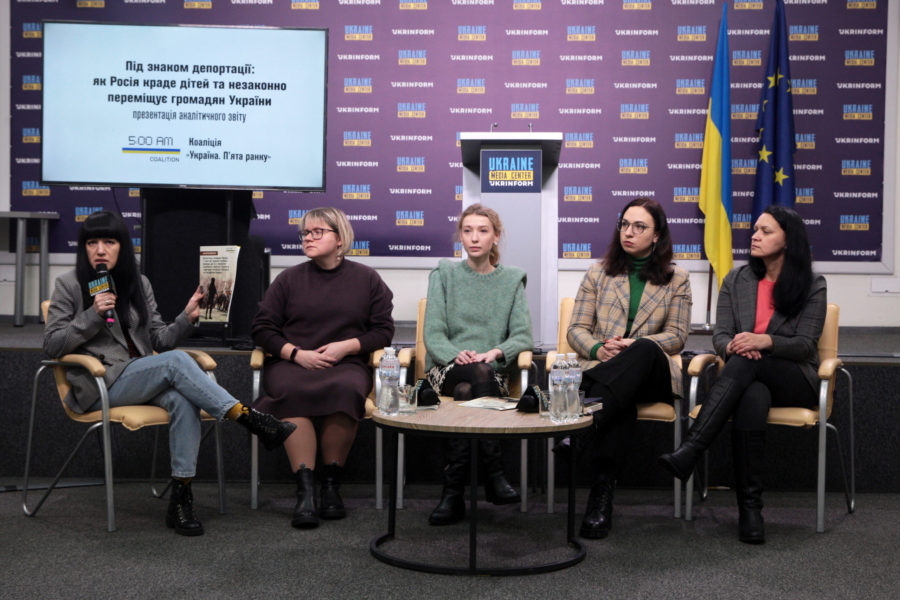 Photo: Media center – Ukrinform
Photo: Media center – UkrinformThe text of the report of Ukraine 5AM Coalition “Deportation of Ukrainian citizens from the territory of active military operations or from the temporarily occupied territory of Ukraine to the territory of the Russian Federation and the Republic of Belarus” is available in Ukrainian and English.
Ukraine 5AM Coalition started working on February 25, 2022, the day after Russia’s full-scale invasion of Ukraine began. Today, the Coalition unites 31 NGOs and four individual experts. They combined their efforts to systematically document war crimes and crimes against humanity committed during the Russian armed aggression against Ukraine. The Coalition is also engaged in the protection of victims of the Russian-Ukrainian war through the existing state and international mechanisms of justice. All of this is aimed at achieving justice by holding the ruling elite of the Russian Federation to account for the crime of aggression against Ukraine.
If you have found a spelling error, please, notify us by selecting that text and pressing Ctrl+Enter.

